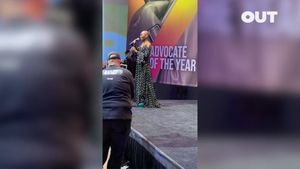Texas death row inmate Donald Aldrich acknowledged he wasn't entirely blameless in the slaying of a Tyler man targeted for abduction and robbery because he was gay. But Aldrich insisted he wasn't the one who took Nicholas West's life. "I'm not totally innocent," Aldrich, 39, said on a Denmark-based Internet site devoted to condemned prisoners. "I was part of a crime that ended in the death of a young man but did not play a part in his death." Aldrich, set to die Tuesday evening for the fatal shooting of the 23-year-old West, would be the second man executed for the slaying. It is the 16th execution this year in Texas and the third in just eight days. Two more are scheduled for this month. In February 2003 Henry Earl Dunn went to the Texas death chamber after similarly describing events that led to West's killing November 30, 1993. Dunn said he was at the Tyler park, a known gay meeting spot, where West, a medical clerk, was lured under the guise of seeking sex but was abducted and taken to a remote area of Smith County. There West was stripped, ordered to his knees, and shot as many as 15 times. Dunn blamed Aldrich for what he said was a crime that "got out of control." Aldrich, at his trial, blamed Dunn for starting the gunfire. Dunn responded he could "not positively say" he did any shooting. Authorities believed both were participants. "Aldrich is one of these guys who thinks he's smarter than anyone else," said David Dobbs, a former Smith County assistant district attorney who prosecuted the case. "He tried to spin it to police. Ballistic tests showed two guns were shot." In appeals to the court to halt the lethal injection, Aldrich's attorneys did not dispute his guilt but raised questions about trial and execution procedures. One appeal contended that a pair of psychologists at Aldrich's trial testified he would continue to be a violent threat if he were allowed to live although neither psychologist ever met or examined Aldrich. The question of future danger is one Texas juries must consider when deciding whether a capital murder convict should be sentenced to death. Aldrich's lawyers argued such testimony was unreliable and the result unconstitutional. They also pointed to Aldrich's record since he went to death row, noting that despite predictions he would be a continuing violent threat, he had only one disciplinary infraction over 10 years, and that was for refusing a cell assignment because of cockroach infestation. "No violence ensued," the appeal said. "In short, in the decade the Mr. Aldrich has been incarcerated, he has not committed a single violent act." A second appeal sought an injunction to block the use of the combination of lethal drugs used by Texas prison authorities, contending its use is unconstitutional because it "unnecessarily increases the risk of torture during the execution process and does not comport with evolving standards of decency." In June, a similar appeal failed when the U.S. Supreme Court refused to halt an execution in Texas. Aldrich's lawyers pointed out that, unlike that case, their request was filed before Aldrich even had an execution date and their action shouldn't be dismissed as merely a delay tactic. Aldrich was on parole after a pair of convictions, one for burglary in Smith County and a second for robbery in Dallas County, when he was arrested for the West slaying. Authorities believed Aldrich was the leader of what became known as the "CB gang," so named because they first became acquainted over CB radios. For months the gang, in which Aldrich was known as "Sundance," preyed on gay men in the Tyler area. The attack on West was the third in a week involving gays. In a videotaped confession to police, Aldrich said he didn't like homosexuals because at age 9 he had been raped by a gay cousin. A third member of the gang, David McMillan, who was 17 at the time of the attack, received a life prison term.

















































































